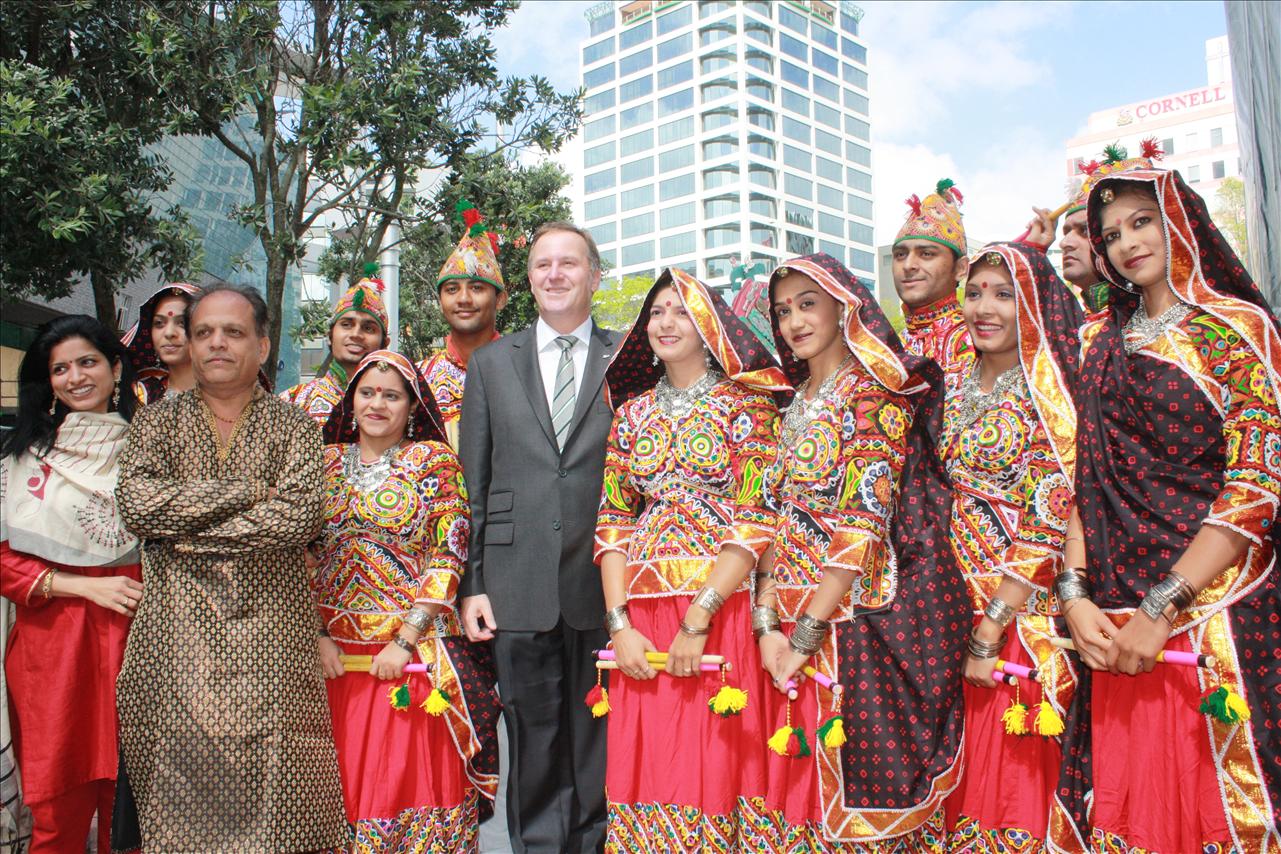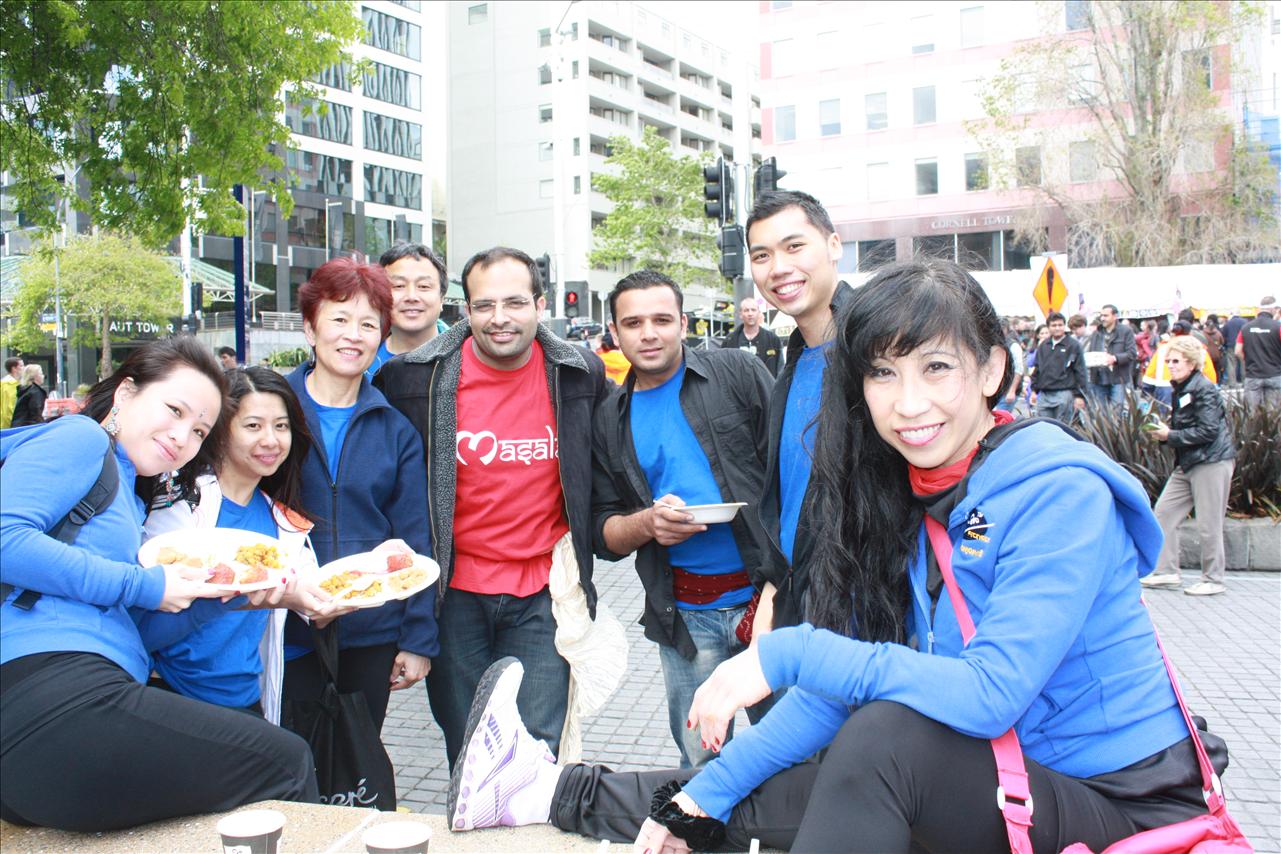Markets crumpled, unemployment rose to unheard of heights, there was little money left with the common people and sovereign and individual debts rose to unmanageable levels.
We in New Zealand have had our share of troubles, with recurring earthquakes and aftershocks in Christchurch, the Pike River Mine tragedy, collapse of a number of finance companies, closure of several manufacturing units and many small and medium firms going bust resulting in job losses.
Compounding the problem is the brain drain – a record number of New Zealanders packing their bags and moving to Australia – according to some sources, more than 166,000 in the past four years.
With such gloom and doom, many of us did not have the mood or the inclination to celebrate individual events such as birthdays and anniversaries, leave alone participate ‘fully’ in social and cultural festivities.
However, if the Diwali festivals that have been held so far around the country this year are any indication, the mood to celebrate appears to have returned. There is greater enthusiasm among officials in social and cultural associations to organise festivities, bringing together people of varied ethnicity.

A major event
The Diwali Festival held at the Aotea Square on October 13 and 14, 2012 (reported in our October 15, 2012 issue) was reflective of the ‘return of passion’ for such events.
Organised by the Asia NZ Foundation in association with the Auckland Tourism, Events and Economic Development (ATEED) and the Indian High Commission, under the major sponsorship of Auckland Council, ANZ Bank, Barfoot & Thompson, AUT University of Technology and Radio Tarana, it was arguably the largest event of its kind held in Auckland.
As Asia NZ Foundation Chairman Philip Burdon said, the Indian community has grown to represent almost all the States of India and hence Diwali has become one of the most important and significant events in New Zealand’s social calendar over the past 11 years.
“Diwali is a festival that teaches us tolerance, harmony, understanding and goodwill. It is today celebrated as a public event throughout the country,” he said.
Homes to halls
While Diwali has transcended from its private celebration at home to be observed as a major festival in India and other parts of the world, the question of its ‘over commercialism’ has been a subject of debate in New Zealand, as probably it is in Australia, UK, US, Canada, Singapore, Malaysia and other countries that account for a sizeable population of people of Indian origin (PIO).
Such debates notwithstanding, the fact that Diwali brings together hundreds of thousands of people to enjoy the rich culture of India, its exquisite cuisine and time-tested heritage is a good enough reason that calls for celebrations.
It is gratifying that an increasing number of New Zealanders today participate and rejoice in such observances as Eid Al Fitr and Eid Al Adha of Muslims, Vaisakhi and Guru Nanak Jayanti of Sikhs, Easter and Christmas of Christians and observances of various other groups.
On such a happy note, we also notice that there is a certain charm to Diwali that attracts people to its festivals.

Indian heritage
Over the past 11 years, the Diwali Festival organised by Asia NZ Foundation in Auckland and Wellington have enabled New Zealanders to see and enjoy some of the well-known arts and dances of India.
For instance, this year saw the performances of ‘Rangashree School of Fine Arts,’ based in Ahmedabad, Gujarat and the artistic creations of Rangoli expert Mugdha Brid, brought to New Zealand by the Indian Council for Cultural Relations (ICCR) of the Indian Government and the Indian High Commission.
The performers of Rangashree School and the Rangoli artiste inspired New Zealanders with their colourful display of talent, bringing to light the fact that India is a culturally diverse and multitalented country. We cannot think of any other festival that brings together such talent anywhere in the world.
It is gratifying that Diwali has long crossed the ‘Hindu threshold’ to become an occasion of national importance, although its religious overtones are still the preserve of devout Hindus.
Although unannounced and perhaps unrecognised, the festival heralds a new era of hope, peace, progress and prosperity to all. The mere gathering of people, irrespective of their faiths and beliefs purports universal brotherhood.
Secular values
In a larger sense, Diwali also brings to the fore the values of Secularism, which is the legal state of India and New Zealand. To be secular is not to be atheistic or agnostic but to live as a tolerant society, imbibing the best of what people of varied vicissitudes can offer.
Speaking at the Diwali Festival held at Aotea Square on October 13, 2012 Primew Minister John Key said that Indians bring skills, experience and expertise to New Zealand, contributing to its growth and development.
“Indians play an important role with their vibrant culture. They have brought great skills that have changed New Zealand to make it richer and better. I hope we could have more people from India to contribute to our progress,” he said.
Growing ties
We have also heard and read in recent months that a number of Indian companies have either acquired large enterprises in New Zealand (Infosys for instance has purchased shares in Gen-i and is looking for further expansion) or establishing their presence in the local market. Likewise, several New Zealand organisations have been signing distribution and other arrangements with enterprises in India.
These developments will help to enhance trade and commerce and people-to-people contacts, bringing together the two countries towards closer economic and social cooperation.
We are confident that Diwali 2012 will open a new chapter in bilateral relations and move New Zealand and India towards a viable Free Trade Agreement.






